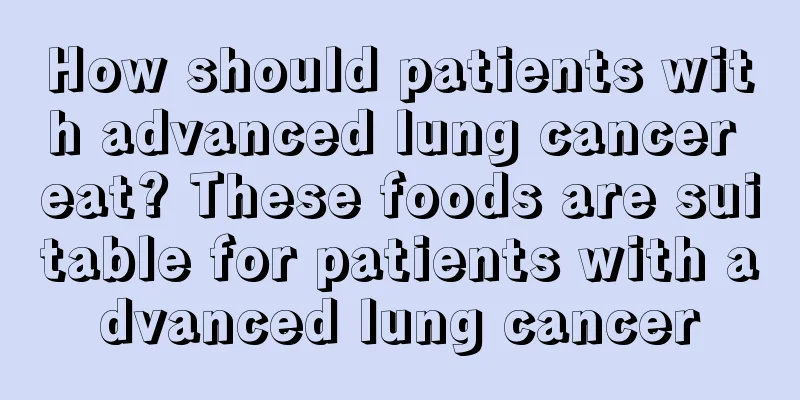Symptoms and manifestations of colic

|
Colic is a common gastroenterological disease that can affect people of all ages. Colic can cause loss of appetite, abdominal pain, and gastrointestinal discomfort. Patients with colic need to pay attention to their diet. Many foods that are difficult to digest should not be eaten, and they should eat more porridge. So, what are the symptoms and manifestations of colic? Symptoms of colic in babies Mothers should be alert to their babies' colic. Once colic occurs, the baby will often have recurrent abdominal pain and crying. The symptoms will be better during the day, but in the evening or at night, there will be sudden and loud crying at irregular intervals, and the crying will continue for three or four hours. No matter what efforts are made, it is difficult to make the baby calm down. Most infants with this condition will experience restlessness, flushed face, curled knees, and fist-clenching and kicking legs. They will often have abdominal distension, or wind, which will not be relieved until the rapid intestinal peristalsis disappears or the gas is discharged. Usually the baby will calm down after a few hours of the attack. Symptoms and manifestations of colic in adults When intestinal spasm occurs, it is caused by strong contraction of the intestinal wall smooth muscle, resulting in paroxysmal or intermittent abdominal pain, usually around the navel, with no obvious abnormal physical signs between attacks. It is usually caused by overeating and indigestion, or cold abdomen, which can cause great harm to the patient's health. What to do if an adult has colic When treating intestinal spasm, you can use abdominal massage or some medications for treatment. However, before treatment, you need to understand the cause of the disease, so that you can relieve headaches in time and effectively control the disease, which is also very helpful for the treatment of the disease. Massage for intestinal spasm is usually done before going to bed. Generally, use the palm of your hand to massage the abdomen, with the navel as the center, and massage clockwise or counterclockwise for several circles. During the massage, the patient should also cooperate with deep breathing and stay focused. This can promote intestinal peristalsis, speed up digestion, and facilitate intestinal absorption. Intestinal spasm may also be caused by the stimulation of parasitic toxins. This condition is generally treated with medication because this inducing factor may cause temporary bleeding in the intestinal wall, or cause excessive excitement of the parasympathetic nerves, while causing spasms in the smooth muscles of the gastrointestinal tract, causing abdominal pain. |
>>: Symptoms of vocal cord nodules
Recommend
Goose bumps on the butt
Goose bumps on the buttocks are mainly caused by ...
How to clean stains on clothes
Washing clothes is the most common chore in our l...
What are the hazards of hepatobiliary toxins to the human body
There are many toxins in our body. If the body ca...
What kind of cup should I use to serve juice?
Cups are essential daily necessities in life. We ...
How should patients with glioma eat
Glioma is a malignant tumor of the brain. Current...
What are the nursing methods for prostate cancer patients? What should be paid attention to after prostate cancer surgery?
Prostate cancer is a malignant tumor disease. Wit...
How to deal with moldy leather bags
Girls' love for handbags is beyond imaginatio...
What will happen if I take Chinese medicine and drink beer
Nowadays, many people no longer use Western medic...
Why do hairs grow longer the more they are cut?
I believe that as long as the hot summer comes, m...
What types of facial tumors are there
The facial structure is also very complex, and th...
Understanding postoperative care for prostate tumors
Postoperative care for prostate tumors is very im...
How long can you live if lung cancer spreads throughout your body?
Lung cancer How long can you live if lung cancer ...
What is the best way to treat kidney stones?
The incidence of kidney stones is relatively high...
How to treat brain metastasis from lung cancer? 3 methods can be used to deal with brain metastasis from lung cancer
The occurrence of lung cancer can cause great har...
How to prevent mosquitoes from biting babies
Babies cannot stay at home all day. In the summer...









